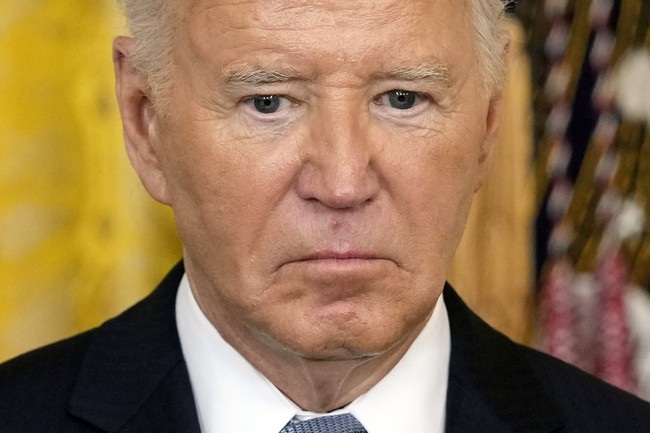
reactormag.com
Scaring the Ghosts: Stephen King’s Pet Sematary (Part 5)
Books
Scaring the Ghosts: Stephen King’s Pet Sematary (Part 5)
It’s Halloween in Ludlow…
By Ruthanna Emrys, Anne M. Pillsworth
|
Published on July 10, 2024
Comment
0
Share New
Share
Welcome back to Reading the Weird, in which we get girl cooties all over weird fiction, cosmic horror, and Lovecraftiana—from its historical roots through its most recent branches. This week, we continue Stephen King’s Pet Sematary with Chapters 19-21. The novel was first published in 1983. Spoilers ahead!
Summary
While Church is at the vet overnight post-neutering, Ellie stays awake sobbing. After Ellie’s “hoarse, angry cries became hitches and hiccups and moans,” then silence, Louis finds her asleep on the floor, hugging the cat bed Church rarely deigns to use. He settles her in her own bed. On impulse he writes a note: “I WILL BE BACK TOMORROW, LOVE, CHURCH.”
When Church returns, Ellie makes much of him. Louis, ridiculously, mourns for the disappearance of Church’s feisty “gunslinger” walk. Now Church walks convalescent-carefully. He doesn’t fuss to go outside. He’s changed—ultimately for the better, Louis tells himself.
Neither Rachel nor Ellie seem to notice what Church has lost.
* * *
In Ludlow, Indian summer slides into Halloween season. Louis settles into a “demanding but pleasant routine” at the university clinic. He presents a conference paper on the legal ramifications of student treatment, mentioning Victor Pascow under a fictitious name. Louis’s memory of the student’s death—and of his nocturnal trip to the Sematary—grows less intense. About what Pascow said to him, he doesn’t think at all.
It’s a good season for the Creeds, down to the renewed vigor with which Louis and Rachel make love, and Louis’s deepening friendship with Jud Crandall. On Halloween, Louis takes a witch-costumed Ellie trick-or-treating. Norma Crandall drops the candy and apple she tries to put in Ellie’s loot-bag. There’s brief unpleasantness when Louis opposes Norma’s offer of an unbruised apple and Ellie complains that bruised apples are yucky. Norma wins. She continues to marvel over Ellie’s costume, and a newly arrived batch of ghosts, while Jud and Louis retire to the porch. Jud’s worried about Norma’s worsening arthritis, and the chest pains she won’t see her doctor about. A friend of hers recently died of cancer; Jud thinks she’s scared. Could he impose on Louis to examine her? No problem, Louis answers. Then he’s struck by a dizzying sense that “somewhere something has gone badly wrong.” Moments later, the little ghosts scream and Ellie yells that Norma has fallen down.
In the kitchen, Norma lies on the floor amid spilled apples and candy. As Louis kneels beside her, he thinks it’s “Pascow all over again,” but he pushes the thought away. Norma’s near cardiac arrest. While Jud takes Ellie home, Louis administers CPR. Norma opens her eyes. Louis is horribly certain she’ll start talking about the pet sematary, but no. Jud returns with Louis’s medical bag, and Louis administers a dose of Isodil that stabilizes Norma’s heart.
The ambulance arrives and takes Norma to the Bangor hospital. Louis takes Ellie back out trick-or-treating. She’s impressively calm about Norma’s sudden illness. People with heart attacks have more and die, she says. Then again, Norma’s old and will probably die soon anyway, as will Jud. How Ellie can be so matter-of-fact about her human friends and so hysterical about Church confounds Louis, but then who really understands kids?
In bed that night, Louis must reassure Rachel that Ellie is fine. Toward morning the wind wakes him, and he hears dragging steps on the stairs: Pascow again, but this time he’ll be well decayed. “No,” Louis breathes. The footsteps still. Louis steels himself to check, finds no revenant, returns to bed.
* * *
Norma’s doctor gives her an optimistic prognosis, and she returns home within a week. Snow sets in before Thanksgiving. Rachel and the kids are nevertheless able to fly to Chicago to visit her parents. Seeing them off, Louis recalls how the Goldmans disliked him from the beginning. They considered Louis to be “from the wrong side of the tracks” and believed he was marrying Rachel so she could support him through medical school. Irwin even offered to pay Louis’s whole tuition bill if he’d break the engagement, which caused a furious argument from which their relationship has never recovered. The kids have helped, but Louis still prefers to celebrate Thanksgiving with the Crandalls rather than his in-laws.
After his family’s departure, Louis visits with Jud and Norma. It should be a pleasant evening, but already he misses Rachel and the kids. Rachel phones just as Louis returns home to report safe arrival. “Great!” he says, but as he settles down for a talk, he thinks, “I wish to God you were here.”
This Week’s Metrics
What’s Cyclopean: King excels at the telling detail of a terrifying moment—in this case, the scent of spilled cider candies as Louis works frantically to save Norma’s life.
The Degenerate Dutch: When performing CPR on an old woman, empathy doesn’t actually require imagining her breasts at 17.
Weirdbuilding: Ellie tells Gage about the Headless Horseman and “Itchybod Brain.”
Ruthanna’s Commentary
Things that fixed male cats have done in my house this week: picked a fight with the poodle, marked territory on my kid’s bed, caught two mice and been extremely smug about it. I dunno about walking “like a gunslinger,” but my experience with the procedure given so much freight in Chapter 19 is that it… sometimes but not always results in less whizzing on the furniture. But maybe, like Rachel and Ellie, I’m just indifferent to the ineluctable masculinity of an unfixed tom.
Or maybe Louis is feeling a wee bit of a threat to his masculinity.
He shouldn’t, right? He’s got a loving wife and two kids, a good job, a good house, and a newly-discovered father figure. His wife stays home with the kids, not only so he can go to that good job but so he can hang out with that father figure—she only joins him in evening sociality when they’ve got a babysitter.
It’s the threat of death that unmans him. Despite his medical understanding that there’s nothing more natural, his failure to save Pascow means he’s not the godlike protector that’s an ideal for men in general and doctors in particular. No, not just that. His inability to understand Pascow, and his inability to resist being drawn out to the Sematary, underline his lack of control. And manhood for Louis is about control, far more than the ability to muster a feline strut.
It’s telling that he lumps his nocturnal trip to the Sematary in with “his one visit to a whore in Chicago six years ago”—both events dissociated from the overall narrative of his life and selfhood. For some men, going to a prostitute might bolster their self-esteem. For Louis it was a loss of control, and indeed the timeline puts it shortly after Rachel became pregnant with Ellie. His manhood is all about controlling himself and protecting his family. (We get TMI about his current sex life with Rachel, just to assure us that he’s happily meeting his marital obligations now.) So having to get Church fixed as a form of protection… maybe it’s cognitive dissonance.
Norma’s Halloween heart attack provides an opportunity to make up for his earlier failure. He doesn’t freeze as he did with Pascow. And unlike with Pascow, freezing would’ve made a difference—his swift action matters. He fears that whatever spoke through Pascow will possess Norma, but it doesn’t happen. And when the “dream” comes that night, he’s able to refuse the undead visitor.
So much for the successes of the present. Chapter 21 turns us toward the past—the roots of the things that eventually are going to go wrong, failures of protection so far only foreshadowed. On a personal level, Louis shares with the reader what he hides from Rachel: that her father offered the bribe of med school tuition if he dumped her. Louis was too poor, too low-class, too unlikely to succeed. It’s a vicious scene, quickly sketched: Irwin taking out his checkbook, Louis losing his temper with thoroughly earned justification. Anyone would have trouble forgiving that; most would want their fiancée to know. But Louis chooses protection over collaboration every time.
I wonder if there are parental conversations that Rachel’s never told Louis about.
The other root is more historical but as swiftly sketched: Jud tells Louis about the Micmac resistance to the British 200 years ago—and to American incursions on their land now. “In those days the Micmacs had been pretty fearsome, he said, and then added that he guessed there were a few state and federal land lawyers who thought they still were.” It’s foreshadowing, but also plain sense: maybe one should take living on stolen land more seriously. Especially if the theft is, by some miracle, still being fought in the courts.
Anne’s Commentary
Chapter 19 opens with high drama and ends with a murmur of existential grief. Church’s overnight stay at the vet’s sends Ellie into “a crying tantrum of such ferocity that Rachel and Louis stared at each other blankly, eyebrows raised.” Since Ellie shrugged at his necessary absence when she first learned it was pending, her parents may well be surprised. Or should they be? A chapter later, Ellie’s alarm at Norma’s heart attack transitions within hours to acceptance of Norma’s mortality—that people with heart attacks and old people in general do die “pretty soon,” is her blase response to Louis’s attempts to reassure her. “Does anyone really think they understand kids?” he wonders. Rachel understands that Ellie’s crying jag resulted from her fears for Church; let her work it out on her own. Louis recognizes she’s done that when he sees her asleep at last with the cat’s bed in her arms. Though Church disdains the bed, preferring Ellie’s, it’s symbolic of him and his safety within the family. Louis further works the symbol by pinning “Church’s” I’ll-be-back note to its cushion.
He has less insight into his own reaction to Church’s return, labeling his sadness as “ridiculous.” So what if Church is no longer the feisty “gunslinger” Louis admired. So what if he’s now docile to the point of letting Ellie feed him by hand. So what if he doesn’t want to roam anymore, even as far as the garage. Wasn’t that domesticity the whole point of his neutering? Won’t his change be ultimately for the better? Perhaps so, Louis concludes.
That “perhaps” is telling. Preach reason to himself all day, and Louis still mourns Church’s loss of sexual potency. It’s a little death, his exclusion from the feline gene pool and the thrills of the amorous chase. In effect, it renders Church prematurely old. Lessened. Closer to the big death, no matter how many more years it buys him.
This is not the Winston Churchill through whom Louis Creed could escape his own sexual anxieties.
Wait, what sexual anxieties? Louis’s sex life is just fine! In this very chapter, post-Ellie-tantrum, the couple make love. In the next chapter, we learn that one of the benefits of their settling in Ludlow is that most nights after Louis returns from the Crandalls’ house, he and Rachel make love. “Never since the first year of their marriage had they made love so often, and never so successfully and pleasurably.” I’ve added the italics. By wondering how unsuccessful and pleasure-deficient the couple’s sex lives used to be, am I reading too much into the sentence above? Are the spikes in sexual frequency and quality simply one more aspect of the good life the Creeds are leading now? The opening of Chapter 20, after all, is all about the rising arc of the family’s fortunes, and even the Halloween crisis of Norma’s heart attack doesn’t depress it for long. Ellie handles the prospect of Norma’s death as “a matter of course, a given… with a very Louis-like shrug.” Rachel handles her role in the emergency well, albeit from across the road. Though Louis has another dream (not-dream?) about Pascow that night, he’s able to dismiss the approaching horror with a whispered “No.”
There’s no second nocturnal jaunt to the pet sematary. Not yet. But this is Stephen King, who excels at taking readers up pleasingly normal slopes that crest at increasingly harrowing drops. Monsters dwell under his nice smooth tarmacs, as death underlies life. That’s just the way it is, Ellie can say, as long as the monster-fodder isn’t her cat.
The following factoids are relevant to my maybe-not-entirely irrelevant interest in the Creeds’ intimate relationship. I wanted to figure out what year Pet Sematary is set in. The clues I latched onto were that, in the narrative so far, the kids watch two TV series: ZOOM and The Muppet Show. The original ZOOM ran on PBS from 1972 to 1978, with reruns until 1980. The Muppet Show ran in US syndication from 1976 to 1981. If we count the ZOOM reruns, Ellie and Gage could have been glued to both shows anywhere between 1976 and 1980. If we toss the reruns (as I do, these being my factoids), the novel takes place between 1976 and 1978.
The point is, what are the parental Creeds doing with twin beds, a la fifties sitcoms, well into the seventies? You’d think that after that “narrow, sagging apartment bed” in which they coupled premaritally, they’d at least spring for a nice queen size. And why did Louis dread that Rachel’s father, Irwin, might have summoned him for a private chat because he’d learned about those five illicit nights? Arguably, that dread might have been inspired more by Irwin’s overbearing personality and ill-hidden disapproval of Louis than by any anachronistic prudishness on Louis’s part. Still. When it turns out that Irwin will pay all of Louis’s med school tuition in exchange for him breaking his engagement to Rachel, Louis blows up. Of course he does, at such an emasculating move on Irwin’s part! But why is it that a long time after the confrontation, Louis admits to himself that “part of his rage had been relief”?
Relief for what? And a relief the memory of which Louis needed to suppress for so long?
If I were an evil professor, I’d make the above an in-class essay question.
Not being that evil, or a professor, I’ll ponder instead on what Victor Pascow might have wanted to discuss with Louis after Norma’s near-death experience. Norma doesn’t speak about the pet sematary in her distress. After all, she doesn’t die. Louis is able to revive her, as he couldn’t revive Pascow. And is it a good thing that Louis successfully refutes Pascow—or whatever speaks through him?
Or might Pascow have had a critical reminder to pass on against some impending event? Like, don’t go beyond the barrier in the pet sematary. For whatever reason.
Next week, join us for a tasty bite of eschatology in Megan Chee’s “The Worms That Ate the Universe.”[end-mark]
The post Scaring the Ghosts: Stephen King’s <i>Pet Sematary</i> (Part 5) appeared first on Reactor.

















